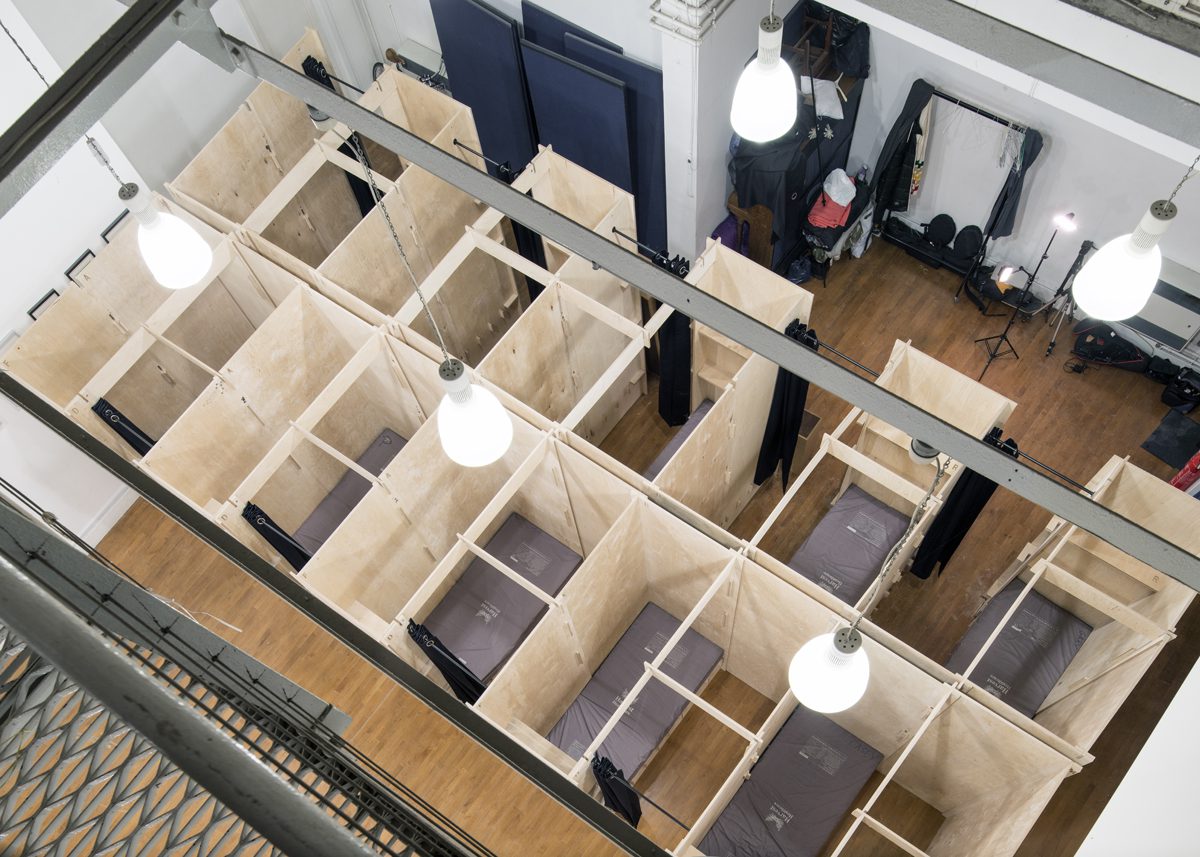Reed Watts designs modular temporary accommodation for homeless people
Reed Watts has designed a modular system of indoor sleeping pods for homeless people. Located at the 999 Club’s night shelter in Deptford, London, the first 10 completed pods provide private and secure temporary accommodation. Won in competition, the system meets Commonweal Housing’s design criteria for a reusable, short-term structure that can be installed in halls, as well as empty and underused buildings.
The structures are made up of interlocking, pre-fabricated, 18mm thick fireproof birch plywood panels that can be easily stored, moved and assembled by hand without the use of tools. Measuring 2.1 metres high by 2.1 metres long and 1.9m wide, they incorporate privacy partitions with a raised platform for a mattress that acts as both a bed and a seat, as well as storage space for personal belongings. The side panels are shared with the adjacent pod, while a rail-mounted curtain provides additional privacy at night-time. Deptford-based Aldworth James & Bond fabricated the panels pro bono, with materials sponsored by Specialised Panel Products.
A prototype was built last year and tested at the 999 Club and Housing Justice in Hillingdon, West London, says the architect. The impact on people using the pods has been very positive. One of the first to benefit was a 48-year-old man with a history of mental illness. He had previously stayed at the night shelter in Hillingdon, but had struggled with its communal nature. The pods, he noted, provided him with a sense of security, and having somewhere to return to after work additionally brought a sense of normality to his life. This reminder, coupled with the privacy of the pod, had an aspirational impact on him, reinvigorating his sense of worth, and providing him with additional drive towards finding more permanent accommodation.
Following feedback from shelter management and guests, the initial model has been refined with its height reduced slightly to make it easier to install, and the raised mattress platform added. To further enhance the accessibility of the project, the architect and Commonweal Housing are releasing the design on a royalty-free Creative Commons license so that other organisations, charities and councils can benefit.
Designs for the Common Weal Pod are currently being shown at New London Architecture’s Factory-Made Housing exhibition, which runs at The Building Centre, London until 18 January 2019.


























